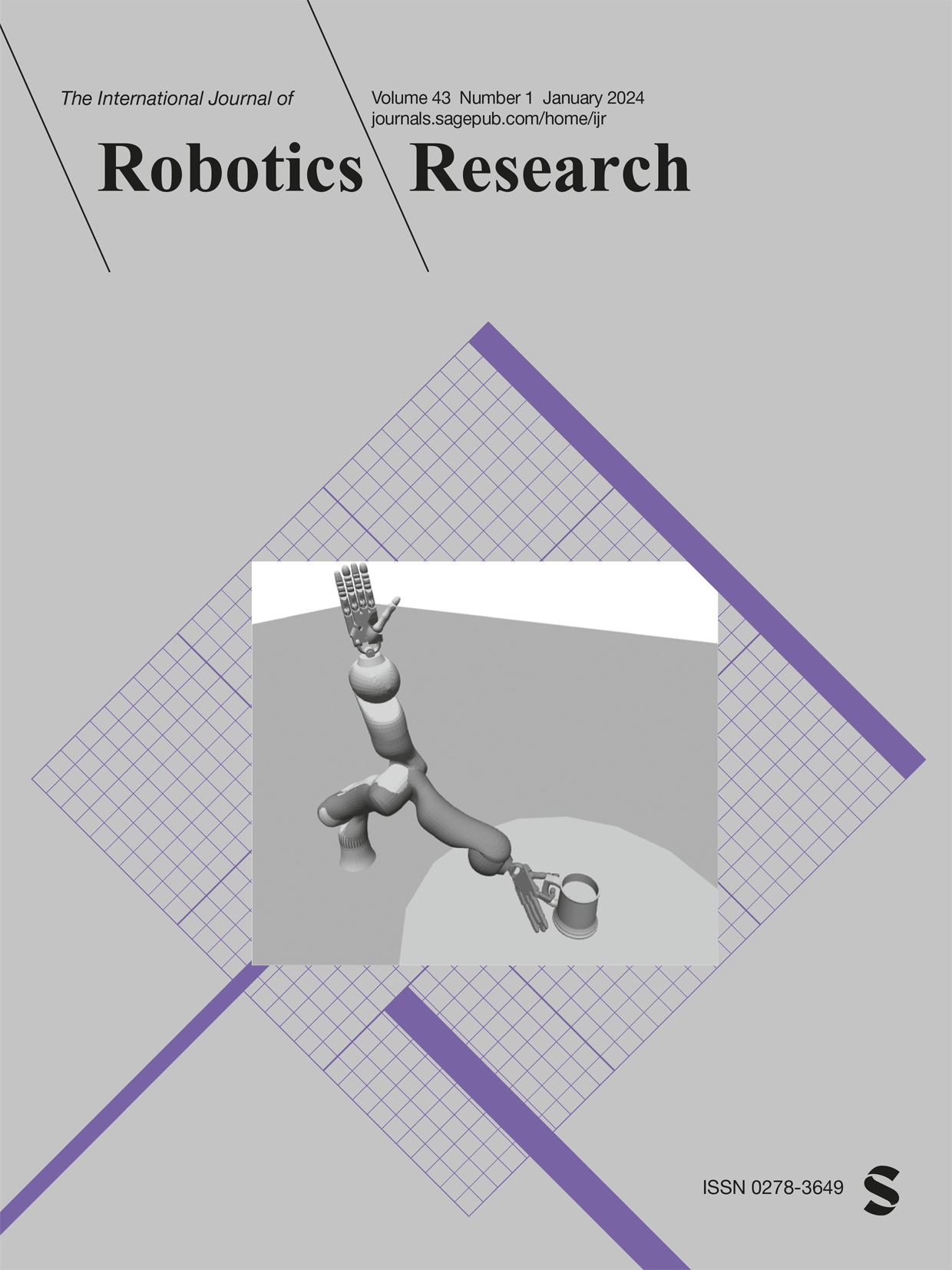多机器人、多传感器探索多种环境,具有完全的空中自主任务
IF 5
1区 计算机科学
Q1 ROBOTICS
引用次数: 0
摘要
我们提出了一个协调自主管道的多传感器勘探受限环境。我们同时解决了在以前的工作中通常被忽视的四个广泛的挑战:(a)有效地利用距离和视觉传感模式,(b)在广泛的环境中进行这种探索,(c)对不良事件具有弹性,以及(d)在物理机器人团队中执行此任务。我们的解决方案以行为树架构为中心,它可以自适应地在各种行为之间切换,包括协调探索和响应不良事件。我们的勘探策略利用了视觉和距离传感器的优势,采用了通用的基于边界的勘探算法和基于openvdb的地图处理管道。我们的本地规划器利用动态可行的轨迹库和基于gpu的欧几里得距离变换地图,允许快速安全的导航通过狭窄的门道和广阔的空间。自动化管道通过一系列广泛的现场实验进行评估,最多三个机器人组成的团队在密闭空间内飞行速度可达3米/秒,飞行距离超过1公里。我们提供了各种现场实验的总结,并详细介绍了产生的弹性行为:操纵狭窄的门道,适应意外的环境变化,以及紧急着陆。在DARPA地下挑战赛中,我们提出的自主管道为我们赢得了“探索最多领域”奖做出了贡献。我们提供了对经验教训的扩展讨论,发布了开源软件,并展示了一个视频,说明了我们广泛的现场试验。本文章由计算机程序翻译,如有差异,请以英文原文为准。
Multi-robot, multi-sensor exploration of multifarious environments with full mission aerial autonomy
We present a coordinated autonomy pipeline for multi-sensor exploration of confined environments. We simultaneously address four broad challenges that are typically overlooked in prior work: (a) make effective use of both range and vision sensing modalities, (b) perform this exploration across a wide range of environments, (c) be resilient to adverse events, and (d) execute this onboard teams of physical robots. Our solution centers around a behavior tree architecture, which adaptively switches between various behaviors involving coordinated exploration and responding to adverse events. Our exploration strategy exploits the benefits of both visual and range sensors with a generalized frontier-based exploration algorithm and an OpenVDB-based map processing pipeline. Our local planner utilizes a dynamically feasible trajectory library and a GPU-based Euclidean distance transform map to allow fast and safe navigation through both tight doorways and expansive spaces. The autonomy pipeline is evaluated with an extensive set of field experiments, with teams of up to three robots that fly up to 3 m/s and distances exceeding 1 km in confined spaces. We provide a summary of various field experiments and detail resilient behaviors that arose: maneuvering narrow doorways, adapting to unexpected environment changes, and emergency landing. Experiments are also detailed from the DARPA Subterranean Challenge, where our proposed autonomy pipeline contributed to us winning the “Most Sectors Explored” award. We provide an extended discussion of lessons learned, release software as open source, and present a video that illustrates our extensive field trials.
求助全文
通过发布文献求助,成功后即可免费获取论文全文。
去求助
来源期刊
CiteScore
22.20
自引率
0.00%
发文量
34
审稿时长
6-12 weeks
期刊介绍:
The International Journal of Robotics Research (IJRR) has been a leading peer-reviewed publication in the field for over two decades. It holds the distinction of being the first scholarly journal dedicated to robotics research.
IJRR presents cutting-edge and thought-provoking original research papers, articles, and reviews that delve into groundbreaking trends, technical advancements, and theoretical developments in robotics. Renowned scholars and practitioners contribute to its content, offering their expertise and insights. This journal covers a wide range of topics, going beyond narrow technical advancements to encompass various aspects of robotics.
The primary aim of IJRR is to publish work that has lasting value for the scientific and technological advancement of the field. Only original, robust, and practical research that can serve as a foundation for further progress is considered for publication. The focus is on producing content that will remain valuable and relevant over time.
In summary, IJRR stands as a prestigious publication that drives innovation and knowledge in robotics research.

 求助内容:
求助内容: 应助结果提醒方式:
应助结果提醒方式:


